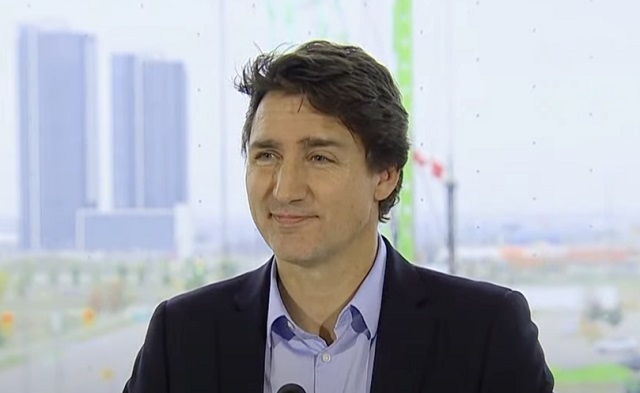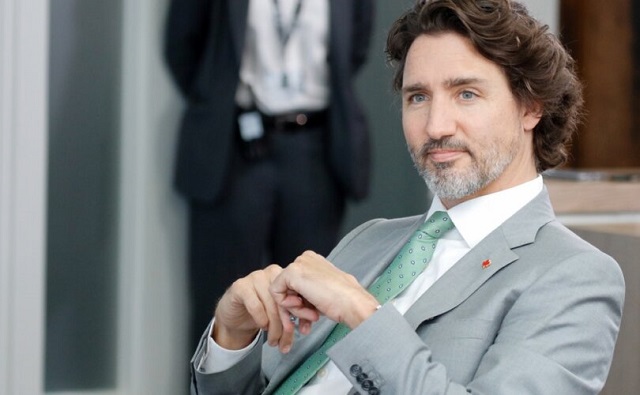Opinion
Red Deer’s A-List talks swimming but the city talks Pickleball

Alberta is forecasting to lead the country in economic growth again next year. Red Deer is expecting thus preparing for more declines in economic growth.
Alberta is expecting population growth of almost 4% next year while Red Deer talks of declining population. Blackfalds leads the country in population growth again and is also, again expanding their recreational facilities. Lethbridge with a population growth making it one of the fastest growing cities in the country is also investing in more recreational facilities.
Red Deer’s A-list came out and interesting enough the number one activity mentioned was swimming and the city is talking about delaying building the Aquatic Centre for another 4 years for finishing in 2025. The A-list also says the favourite location is the Collicutt Centre, located in the south-east corner of the city, the city wants to just replace the downtown pool with it’s inherent traffic and parking problems which would only be multiplied with hoped for population growth.
Red Deer A-list stresses swimming, the city should be facilitating an accelerated expansion of swimming pools but they are delaying the construction of another pool for another 30 years. Fear not remember the city is spending a million on pickle ball courts.
The city hopes to attract 25,000 new residents north of Hwy 11a in the north-west corner of the city. No plans for a swimming pool, they can travel downtown exasperating traffic and parking issues or travel to the Collicutt Centre in the south-east corner of the city which is the preferred choice of the 60% of the city’s recreational population.
Why not, as there will not be any high schools north of the river, anyways, with 5 high schools built and planned for east of 30th Avenue, just beside or down the road from the Collicutt Centre.
2023 will be a pivotal year in Red Deer. Red Deer will be reduced to having only 3 pools.
Collicutt Centre will be celebrating it’s 22 anniversary just as the shovels hit the dirt on a proposed replacement Multi-plex Aquatic Centre.
2001 the Collicutt opened it’s doors for the first time. Red Deer’s population was a hefty 68,308 residents.
1991 Mayor McGhee and council decided it was prudent for Red Deer to have a fourth recreational complex. The population was 58,252 residents and a recreational centre for every 15,000 was the established goal.
2001 Red Deer’s fourth recreational centre opened to a population ratio of a recreational centre for every 17,077 residents. Already behind the target.
There was, as recently as last year that the ratio of 1 indoor ice rink per 15,000 was established as determined for recreational complexes. With that in mind we should have built a new recreational complex with a swimming pool, in 2004 when the population was at 75,923. Giving us 5 recreation centres or 1 for every 15,000 residents as was deemed appropriate. Then again in 2010 when our population was 90,084 we should have built the 6th recreational complex.
If we followed this reasoning we should be planning on opening our 7th recreational complex because our population is 99,832 according to our last municipal census and if we were to grow at 1.2% annually we should hit 120,000 in 2021.
That did not and will not happen. The best we can hope for is a replacement Aquatic Centre to open in 2025.
The ideal goal is one for every 15,000 residents but if we build a 5th recreational complex with an indoor pool then we would have to settle for 1 for every 24,000 residents, which is better than just replacing a pool, as currently planned.
A fifth recreational complex north of hwy 11a would service the residents, expand tourism and kick start development north of 11a.
The current thinking is the city will tear down the downtown recreation centre and build the aquatic centre there. Leaving us with only 4 or 1 recreational complex for every 30,000 residents.
Instead of 7 we would be left with 4 for another 25 years.
What do we do? Councillor Tanya Handley has declared that she cannot support building the aquatic centre downtown with poor parking but would support building it as Councillor Frank Wong has been advocating, north of 11a near Hazlett Lake to kick start development. Newcomer Councillor Michael Dawe would consider moving the aquatic centre as would another.
That gives us 4 councillors but with 8 councillors and the mayor voting on the issue in a year, we need the commitment of 5 to ensure a new pool and not just a replacement.
I am asking all councillors and the mayor to commit to building a new aquatic centre north of 11a. Why now?
The city is a bureaucracy that tends to move slowly and in precise steps. It is always too early then it’s too late. We need commitment now so the city can make the necessary adjustments when necessary. Please commit.
I was on the citizen committee that made the recommendations cited by the city. Those recommendations was made on the premise of (1)an immediate build when (2) no land was available for a new aquatic centre. There is now a delayed construction start and there is lots of land available for a new build.
So while the province and neighbouring communities are investing in recreational facilities and reaping the rewards of economic and population growth why is Red Deer taking the reverse route?
I guess I will learn to play pickle ball.
Bruce Dowbiggin
Why Are Canadian Mayors So Far Left And Out Of Touch?

‘The City of Edmonton pays for a 22-person climate team but doesn’t know who on that team is responsible for what, or what that team has accomplished. Meanwhile, Council takes a pay raise and bumps our property taxes by 8.6%” @michaelistuart
We just returned from a long trip to discover that the City of Calgary wants to potentially re-zone our neighbourhood. Bridle Estates is a collection of 175 bungalow villas for people aged 55-plus. While some people still work most of the inhabitants are retirees. The city’s earnest idea is to create low-cost housing for the tens of thousands arriving here in the city from away.
You can see why a city hall obsessed with white privilege wants to democratize our neck of the south-west corner of the city. Enforced justice has a great tradition. 1970s American cities decided that bussing was the antidote to segregation. After a SCOTUS decision allowing the practice in 1971 (back when liberals owned the court) progressives pushed through an aggressive plan to bus kids from the inner city to the leafy suburbs. And vice versa.
It worked like a charm. For conservatives, that is. It radicalized a generation of voters who soon installed Ronald Reagan as president, and empty buses went back to the depot. The Democrats went from the party of the people to the party people in Hollywood. With time dulling memories, contemporary Woke folk are reviving the integration dream. This time the mostly white suburbs will bear the brunt of the government’s immigration fixation (400K-plus in the third quarter).

There are meetings planned where citizens will be able to address their elected officials— no doubt in a respectful voice. But anyone who’s dealt with Climate Crisis Barbie— Mayor Jyoti Gondek— has much optimism. This is a mayor who exploited a three-way split in centre-right voting here to declare a Climate Emergency on her first day in office.
Then she rolled out hate-speech laws to protect her from being razzed in public. For this and other fabulist blunders— her messing with the new arena project drove a worse deal and a two-year delay in a home for the Calgary Flames— she faced a recall project (which failed to collect over 400K voters’ signatures).
With a housing bubble expanding everyday, Her Tone Deafness has decided that owning a home is so passé. ”We are starting to see a segment of the population reject this idea of owning a home and they are moving towards rental, because it gives them more freedom.” She added that people have become “much more liberated around what housing looks like and what the tenure of housing looks like.”
As the Calgary’s schmozzles and Edmonton’s dabble in climate extravagance illustrate the municipal level of government in Canada is a few lobsters shy of a clambake. Across the country major cities are in the hands of radical NDP soldiers or virtue warriors who would rather have symbols than sewers to talk about.
In Toronto, Jack Layton’s widow Olivia Chow is leveraging her 37 percent mandate to make Toronto a kinder, Wok-er city. In Vancouver and Victoria, B.C., the open-air drug agendas of new mayors and city councils have sent capital fleeing elsewhere. Despite crime and construction chaos, Montreal mayor Valerie Plante won a second term, by emphasizing her gender.

In times when the coffers were full, this ESG theatre might have been a simple inconvenience. But since the federal and provincial governments began shoving responsibilities and costs downward to municipalities there is no wiggle room for grandstanding politicians at the city level. Or for hapless amateurs.
With the public incensed over residential property tax increases on one side and the blandishments of aggressive developers on the other, competent governance has never been more needed in the urban areas. While feds can (and have) printed money to escape their headaches and the provinces can offload costs onto the cities, the municipalities have no room for risk.
The time bomb in this equation is the debt load that the three levels can sustain. After this week’s budget, federal spending is up $238B, or 80 percent since 2015. Coming off this free-spending budget the feds have pushed the federal debt to more than $1.2 trillion this year (in 2015, the debt was $616 billion.) None of the provinces has shown any appetite for the 1990s-style cuts to reduce their indebtedness. Leaving cities to crank the property-tax handle again.
So far, Canada’s cities have been able to use friendly municipal bonds to ease their fiscal problems. But if the Canadian economy continues its tepid performance with no reduction in debt, financial experts tell us that there could be a flight from Canadian municipal bonds— with a consequent spike in interest rates elsewhere.
The backlash on free-spending governments will be severe— and restricted municipalities will be hardest hit. None of this is resonating with Canadians still flush with cash from Covid. The stock markets are still buoyant and those living in cashbox houses are counting their dividends. Willful denial is the Trudeau legacy.

Which is why so many Canadian were shocked last week when American AntiTrump media star Bill Maher did an intervention on Canadian conceits. Using the True North as his warning to America, Maher ripped apart the gauzy leftist dream of Canada as the perfect society, the Sweden north of Estevan. By the time he was done, the single-payer myth was bleeding on the ground.
Maher knows that the bill is coming due for free-spending Canada and its climate charlatans. (The IMF is already warning of a global crisis over debt loads.) The question is: will Canadians come to the same conclusion before it’s too late to save the cities?
Bruce Dowbiggin @dowbboy is the editor of Not The Public Broadcaster A two-time winner of the Gemini Award as Canada’s top television sports broadcaster, he’s a regular contributor to Sirius XM Canada Talks Ch. 167. His new book Deal With It: The Trades That Stunned The NHL And Changed hockey is now available on Amazon. Inexact Science: The Six Most Compelling Draft Years In NHL History, his previous book with his son Evan, was voted the seventh-best professional hockey book of all time by bookauthority.org . His 2004 book Money Players was voted sixth best on the same list, and is available via brucedowbigginbooks.ca.
International
Telegram founder tells Tucker Carlson that US intel agents tried to spy on user messages

Telegram’s Pavel Duroc
From LifeSiteNews
By Matt Lamb
Federal law enforcement tried to convince a Telegram engineer to change the software so law enforcement could read the messages of its users, Pavel Durov told Tucker Carlson during a recent interview.
Federal law enforcement tried to convince a Telegram engineer to change the software so law enforcement could read the messages of its users, the company’s founder told Tucker Carlson during a recent interview.
But he also warned the bigger threat to free expression comes from Google and Apple, which effectively control the use of apps on smartphones.
Telegram is a messaging app that founder Pavel Durov created with his brother after experiencing harassment by Russian officials. Durov remains the “sole owner” of the company. Users can set up “channels” to send mass messages. This function has been useful for political movements, including democracy activists in Hong Kong.
It now has 900 million monthly users worldwide. It uses encrypted messaging which protects users’ privacy.
Born in the Soviet Union in 1984, the entrepreneur had created another social media company; it predated Facebook but was similar in its networking functions. Russian officials demanded Durov hand over private data from groups on the platform, called VK, that were organizing against Vladimir Putin and the country’s leadership.
But in some ways, he faced similar problems from American officials when he was working in San Francisco.
“We get too much attention from the FBI, the security agencies, wherever we came to the US,” Durov said. “So, to give you an example, last time I was in the US, I brought an engineer [who] is working for Telegram, and there was an attempt to secretly hire my engineer behind my back by cyber security officers or agents, whatever they are called.”
Durov said the officials “were curious to learn which open-source library site integrated through Telegram’s app,” he said.
Intel agencies tried to create a backdoor into Telegram, founder tells Tucker Carlson. pic.twitter.com/i4HDykvG6I
— Matt Lamb (@MattLamb22) April 18, 2024
But furthermore, “they were trying to persuade him to use certain open-source tools that he would then integrate into the Telegram code that, in my understanding, would serve as backdoors.”
“Would that allow the US government to spy on people who use Telegram?” Carlson asked.
“The US government, or maybe any other government, because a backdoor is a backdoor regardless of who is using it. That’s right,” Durov said.
“You’re confident that happened,” Carlson asked, about the recruitment efforts.
Durov said yes, because the engineer wouldn’t have a reason to make up the story and Durov shared that he himself has been targeted by the intelligence agencies for recruitment.
He told Carlson:
There is no reason for my engineer to make up the stories. Also, because I personally experienced similar pressure in the U.S whenever I would go to the US, I would have, two FBI agents greeting me at the airport, asking questions. One time I was having my breakfast at 9 a.m. and the FBI showed up at my house that I was renting. And, that was quite surprising. And I thought, you know, we’re getting too much attention here. It’s probably not the best environment to run…
… They were interested to learn more about Telegram. They knew I left Russia. They knew what we were doing, but they wanted details. And my understanding is that they wanted to establish a relationship, to, in a way control Telegram better… I understand they were doing their job. It’s just that for us, running a privacy focused social media platform, that probably wasn’t the best environment to be in. We want to be focused on what we do, not on the government relations of that sort.
“Government relations,” Carlson said, laughing.
The company has now operated out of Dubai in the United Arab Emirates for seven years.
Durov said the company has had better experiences in the UAE. In addition to low taxes and few regulations, the “best part” is that country has not pressured the company to work with it to spy on users.
Carlson asked:
So, in the time that you’ve been here, there have been a number of wars and threats of war. Precursors to war. Have you had any pressure from the government here [in UAE)? Honestly, any pressure from the government here, to reveal a back door into Telegram or to ban anyone or to make any changes to your business?
“That’s the best part. For all the seven years we’ve been here, there’s been zero pressure coming from the UAE towards Telegram,” he said. “They’ve been very supportive, very helpful, and it’s a big contrast [to] whatever we’ve experienced before.”
He said the company has been “receiving a lot of requests” to work with governments. When there is clearly something like “terrorist activity,” the company does assist. In other cases where it was legitimate free speech, Telegram ignores them.
Asked to give an example of “censorship” and privacy violations, Durov related how his company received conflicting letters from American congressional leaders related to the investigation into the violence at the Capitol on January 6, 2021.
Democrats in Congress,”requested that we would share all the data we had in relation to what they called this uprising. And we checked it with our lawyers, and they said, you better ignore it,” Durov recalled. “But the letter seemed very serious. And, the letter said, ‘if you fail to comply with this request, you will be in violation [of], you know, the US Constitution or something.”
He said two weeks later Republican leaders sent the company a letter telling the company that complying with the request for data would also violate the US Constitution.
Telegram ignored Jan 6. massive data request from Democrats. pic.twitter.com/OxdHubojbx
— Matt Lamb (@MattLamb22) April 18, 2024
“So, we got two letters that said, whatever we do, we’d be violating the US Constitution,” he said.
Biggest censorship threat is from Google, Apple
Even after going through numerous requests to hand over data or install spying software on Telegram, Durov said the biggest threat to free speech is not even from governments, but from Big Tech platforms Google and Apple.
“I would say the largest pressure [on] Telegram is not coming from governments. It’s coming from Apple and Google,” Durov said. “So, when it comes to freedom of speech, those two platforms, they could basically censor whatever is you can access on your smartphone.”
The companies can remove Telegram from the app stores, which would hurt the company.
“Obviously a big chunk of the world’s population would lose access to a valuable tool,” he said.
The biggest threat to free speech is Google and Apple, Telegram founder tells Tucker Carlson. pic.twitter.com/6yDtrbWIDg
— Matt Lamb (@MattLamb22) April 18, 2024
The “application of the rules” seems political at times, Durov said. The “rules themselves” are “pretty general,” such as no “violence” or “publicly available child abuse materials,” he said. “It’s hard to disagree with that.”
But Telegram and the Big Tech platforms clash over the “interpretation” of the rules.
“And sometimes they do agree, to their credit,” he said.
However, Durov said he is “hopeful” that past censorship of political movements is truly in the past, saying he does not ” necessarily believe that things are going to get worse.”
He contrasted the platform’s neutral position when it comes to the politics of its users with companies such as Facebook.
“I think Facebook in particular has a lot of reasons apart from being based in the US for doing what they’re doing. I think every app and platform plays its own role,” he said. “You know, we believe that humanity does need a neutral platform like Telegram that will be respectful to people’s privacy and freedoms.”
Durov affirmed he does not want to get involved in any specific political side, when Carlson asked if he wanted to be a “player in world politics.”
He still avoids the United States due to his past experiences with law enforcement.
Company would not take down content skeptical of COVID restrictions
While other platforms, including YouTube, Facebook, and Twitter, would remove or throttle content critical of COVID measures (such as forced masking and COVID jabs), Durov said Telegram did not.
He told Carlson:
We’re a neutral platform. We were helping governments to spread their message about the lockdowns and masks and vaccines. We got dozens of governments who we really [helped with], you know, some of their information, but we also didn’t want to restrict the voices that were critical of all those measures. We thought it made sense for…opposing views to collide and hopefully, you know, see some truth come out of those debates. And of course, we got criticized for that. But, looking back, I think it was the right strategy.
“During the pandemic, we I think were one of the few or maybe the only major social media platform that didn’t, take down accounts or that were skeptical, in relation to some of these measures,” he said.
Durov also said he thinks Elon Musk is doing a good job running X (formerly known as Twitter).
“What X is trying to do is in line [with] what we are building: innovation, trying different things, trying to give power to the creators, trying to get the ecosystem economy going,” he said.
“Those are all exciting things. And I think we need more companies like that,” he said.
“I don’t know if it’s good for humanity that Elon is spending so much time on Twitter making it better, but it’s definitely good for the social media industry.”
Carlson ended by telling Durov he is “rooting” for the company. Carlson’s show has since opened its own Telegram channel.
-
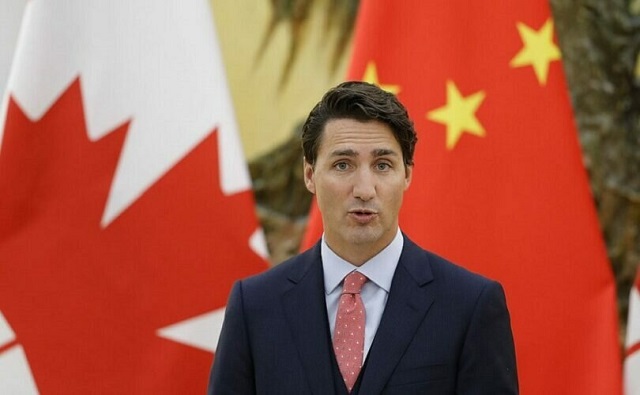
 espionage2 days ago
espionage2 days agoTrudeau’s office was warned that Chinese agents posed ‘existential threat’ to Canada: secret memo
-
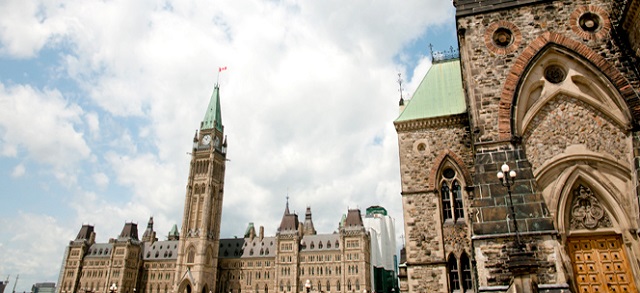
 Economy2 days ago
Economy2 days agoMassive deficits send debt interest charges soaring
-
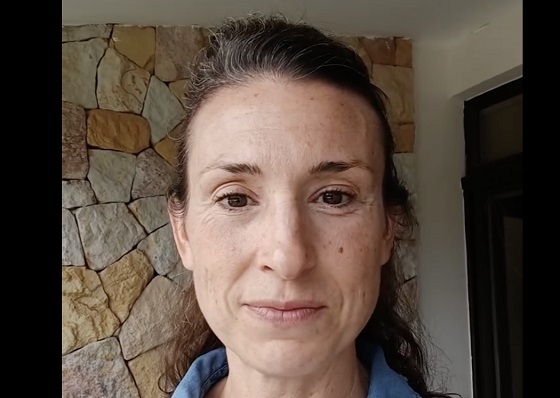
 COVID-192 days ago
COVID-192 days agoPro-freedom Canadian nurse gets two years probation for protesting COVID restrictions
-

 International1 day ago
International1 day agoBrussels NatCon conference will continue freely after court overturns police barricade
-

 Business1 day ago
Business1 day agoBusiness investment key to addressing Canada’s productivity crisis
-

 Jordan Peterson1 day ago
Jordan Peterson1 day agoJordan Peterson slams CBC for only interviewing pro-LGBT doctors about UK report on child ‘sex changes’
-
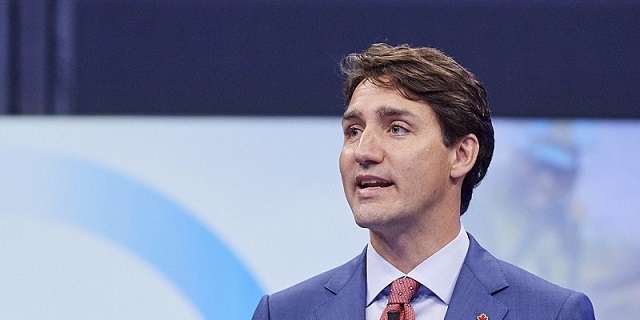
 Business1 day ago
Business1 day agoFederal budget fails to ‘break the glass’ on Canada’s economic growth crisis
-

 Economy2 days ago
Economy2 days agoFederal budget: You can’t solve a productivity emergency with tax hikes



